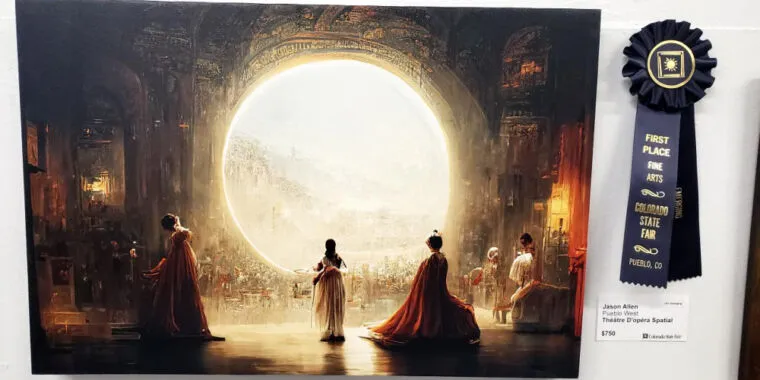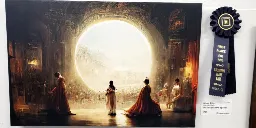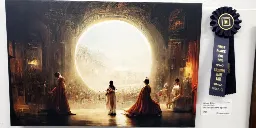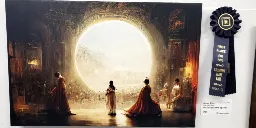US rejects AI copyright for famous state fair-winning Midjourney art
US rejects AI copyright for famous state fair-winning Midjourney art

arstechnica.com
US rejects AI copyright for famous state fair-winning Midjourney art

Controversial AI art piece from 2022 lacks human authorship required for registration.


